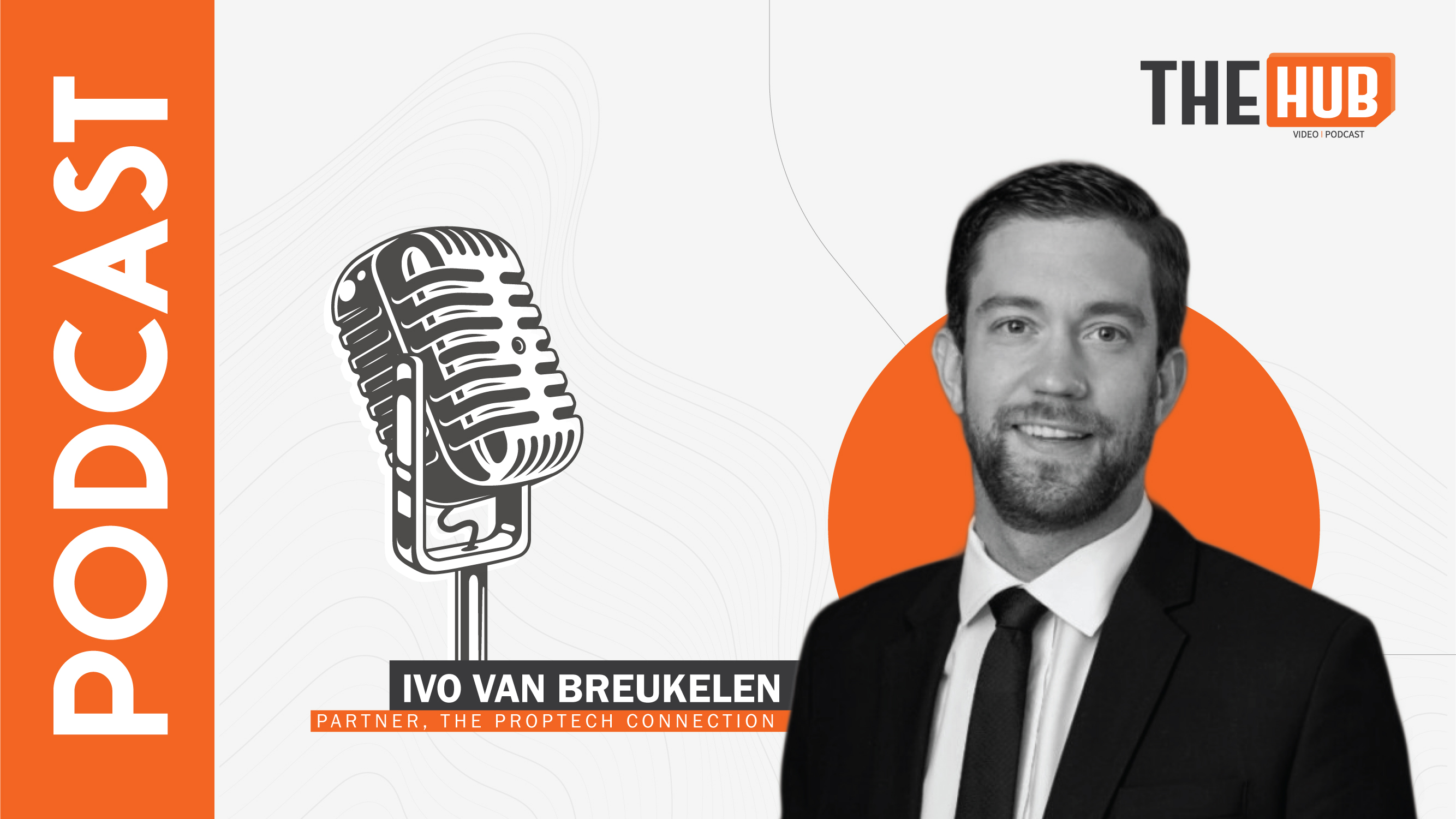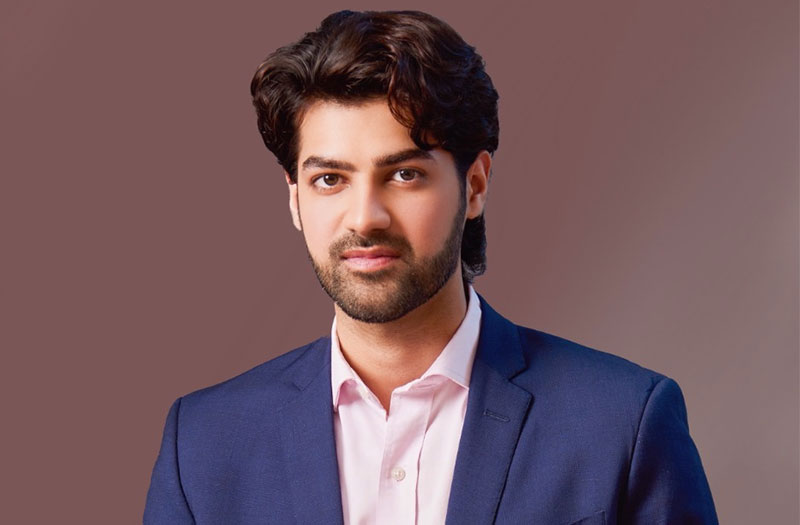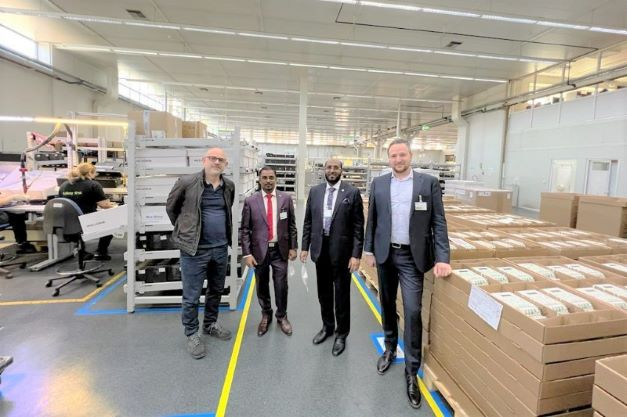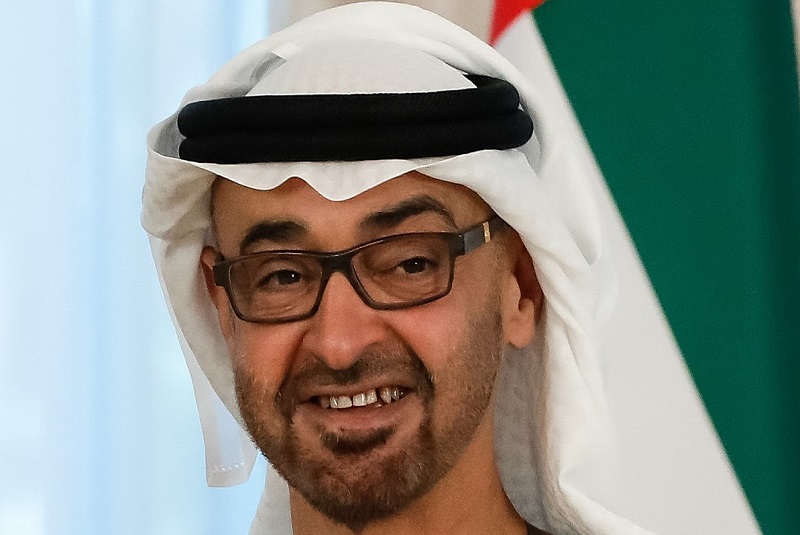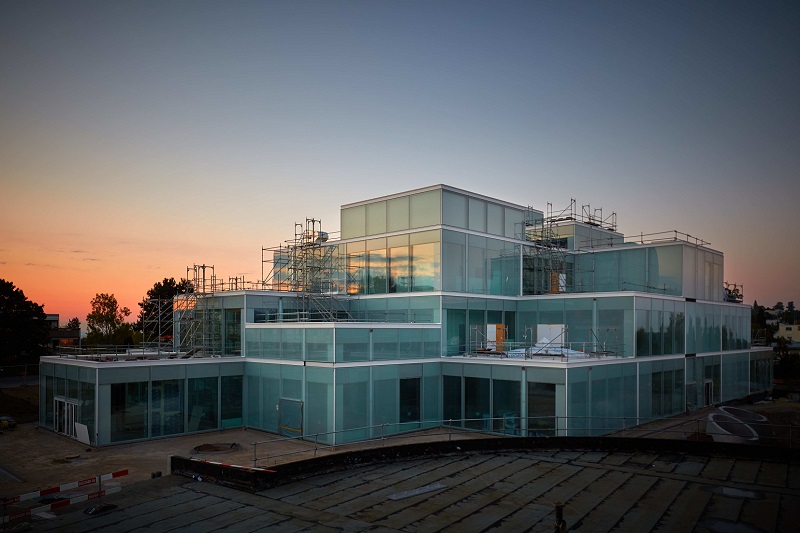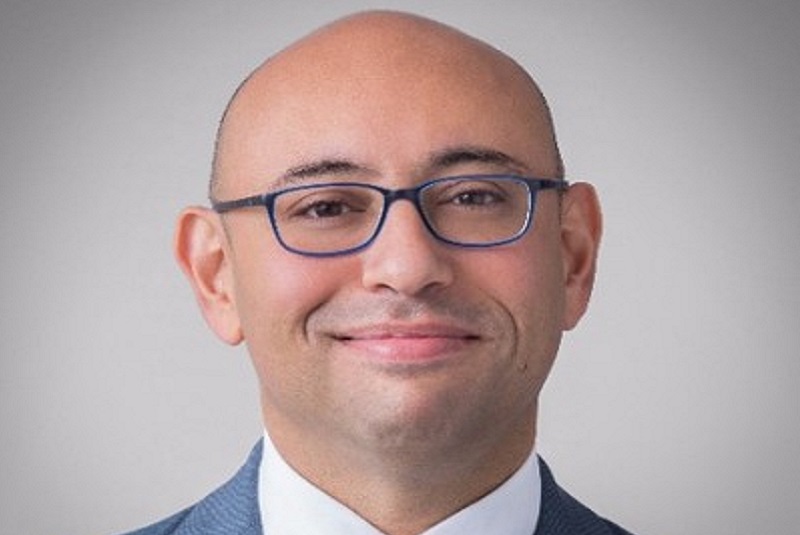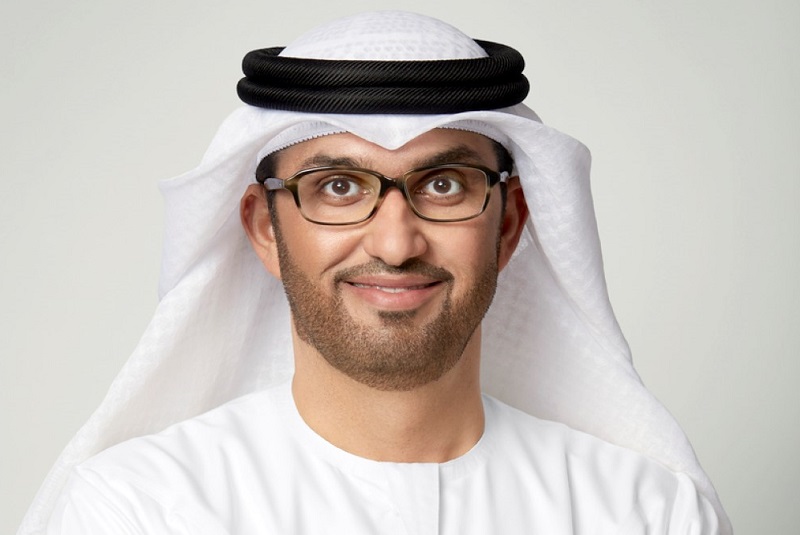
The most talked-about inevitable scenario of our collective future is one of grave destruction caused due to climate change unless governments everywhere reassess their energy policies. An Intergovernmental Panel on Climate Change report released in April this year indicated that harmful carbon emissions from 2010-2019 have never been higher in human history. Environmentalists and scientists have drawn a red line for our planet as they say that we now live through a “now or never” time to try and limit global warming to 1.5 degrees.
The report tracked global net anthropogenic emissions and declared that “an increasing share of emissions can be attributed to towns and cities”. The report’s authors also said that despite some reductions there has been an increase in emissions “from rising global activity levels in industry, energy supply, transport, agriculture and buildings”.
But the news is not all doom, as this inevitability can be avoided if emissions are halved by 2030 and reach a point of net-zero emissions by 2050. This red line has triggered many countries such as the UAE and the Kingdom of Saudi Arabia to announce concrete action plans like Net-Zero 2050 and 2060 respectively.
However, this race to net-zero faces inherent challenges such as an increase in human population and the consequent urbanisation of habitat. The global human population is set to breach the 8 billion mark on November 15, 2022 according to an estimate by the United Nations and upto 80% of this population could be living in urban centres by 2050. The urban/built environment at current population levels is currently responsible for 40-50% of the total greenhouse gas emissions while accounting for up to 80% of energy consumption. So how then do we avoid getting to a point of irreversible climate effects?
Among the many solutions to an overall reduction of greenhouse gas emissions is the evolution of cities into “smart cities”. These “smart cities” hold the promise of addressing global challenges including climate change by creating a sustainable living experience through technology adaptation which contributes to sustainable development and an improved quality of life. The philosophy of smart cities has undergone multiple transformations as more stakeholders joined to create this version of urban living into a future-ready reality. From being technology-provider driven to government-driven to finally citizen-driven, the smart cities model is now embracing the citizen as a co-creator.
Various versions of smart cities are already in existence such as Kansas City in the U.S., Barcelona in Spain, the Austrian capital of Vienna, and Medellin in Colombia. Closer home, as the Kingdom of Saudi Arabia scales up the development of various projects – the philosophy of smart cities underpins each blueprint. From the Red Sea project to developing the historical cultural site of AlUla, Vision 2030 has outlined these developments through the lens of creating smart cities. CMtoday spoke to Samer Yamak, Director for Advisory on smart cities with PwC Middle East in an exclusive interview. Yamak is a regional speaker, panelist and SME leader on smart cities and digital transformation bringing more than 21 years of experience in the Middle East and working with global organizations such as Microsoft, Alcatel-Lucent, Cisco, Orange, Honeywell and PwC.
Q. What is the primary catalyst for cities becoming Smart Cities?
Let me take a step back before I answer this question. Studies by World economic Forum and several other prominent global entities suggest that by the year 2050, urbanization may reach anywhere between 60% to 80% of the total world population. Now this is a critical change in the demographic design of cities and it creates pressure on the cities’ resources. This will present major problems for governments to support such increasing demands while operating with finite natural resources. Clearly there is a need to switch gears and address environmental concerns. Governments are also required to attract organizations by offering hospitable environment for organizations to strive and prosper and to attract investors by offering relaxed investment regulations.
Smart cities came as a solution to address all that and started as an urban development initiative used by governments as an answer to combat emerging crisis such as pollution, climate change and scarcity of resources. Whether it is applied on a large city, a destination or a district, Smart cities quickly rose to become the theme of activities that governments decided to adopt using digital transformation, whereby technological advancement such as IOT, 5G, BIM, metaverse, AI and ML help to accelerate digital transformation initiatives. The goal is to provide improved citizens’ services and unlock economic growth for investors and organizations.
Several consultants and subject matter experts suggest that smart cities is a strategy and to a large extent it might very well be. However, I believe Smart cities is perhaps bigger than that. It is more of a mindset of continuous digital transformation of services and solutions to come up with new and renewed ways to monitor and improve consumption of resources (water, gas, and electricity), offer life improving services for citizens, guests and tenants (like real-time data, online citizen engagement) promote digital government services for organizations and investors to relocate within those smart cities and conduct business and much more. The ultimate objective is to improve the quality of life of the inhabitants, achieve economic growth while managing resources effectively and efficiently. And that is basically the catalyst for cities to become smart cities.
Q. What are the big trends you’ve seen in terms of smart city development?
I believe the biggest trend is Environmental, social, and governance (ESG). The environment angle focuses on areas such as energy efficiency, water and waste management, greenhouse gas emission and climate change. This is becoming a pressing matter globally. Several research studies are raising flags about upcoming natural catastrophic disasters. On the social element, we are looking at emerging topics such as diversity and inclusion, human rights, health and safety and employee working conditions. And on the governance side, we are looking at areas such as ethical standards, stakeholder engagements and stakeholder rights and many more.
Since smart cities are catalysts for change and to improve citizens’ quality of life, smart cities are required to address ESG within their strategy. If we look at the environment side, smart cities are increasingly adopting ideas such as smart water meters, smart electricity, electric grid, solar panels and renewal energy as part of their developments and environment improvement initiatives. Other interesting projects include recycling water and use of autonomous cars with zero carbon emission. The Royal Commission for AlUla in Saudi Arabia for example has tested several autonomous cars to preserve energy on the one side and to align with their ecological strategy of preserving the natural heritage of the city of AlUla on the other side. Recently in Gitex 2022 for example, several companies such as XPeng, Backfly and Jetracer showcased their flying electric cars. Lithium has also launched the eVTOL, the electric vertical take-off and landing jet. Such examples help smart cities in environment persevering.
On the social side, there’s a study published by McKinsey that suggests that racially diverse work environments outperform non-diverse ones by 35%. The UN Sustainable Development goals mentioned goal number 10 as reduced inequalities. Public and private organizations are invited to contribute to those goals and ensure diversity and inclusion. Smart cities are invited to facilitate such initiatives and involving goes beyond simply catering for their needs but evolving to incorporate citizens in the decision-making process of the smart city evolution.
Finally on the governance side, citizens would want to ensure that ethical standards, stakeholder engagement and stakeholder rights are met when it comes to dealing with citizens (whether it’s B2B, B2C or even G2C). This is also evident in several smart citiy initiatives. The Ministry of Municipal and Rural Affairs and Housing (MOMRAH) in KSA for example has launched a mobile super app for citizens and set a target that 95% of citizen and corporate services should be done online and automated. Dubai has launched the citizenship happiness meter mobile app to ask citizens to rank their government interaction and ensure that all citizens are happy. I believe this summarizes the ESG trend that faces smart cities.
Q. What are the primary challenges Smart Cities face today?
I believe the main challenge that smart cities are facing today is citizens’ engagement. Smart cities developers are always concerned whether investing in new ideas and solutions could be profitable and would lead to citizens accepting to live in those smart cities and consuming those services. But what if citizens are not interested? I think 20 years ago, this was not much of a challenge simply because the idea of smart cities was new. Citizens were excited to try new lifestyles, relocate to new destinations and explore unprecedented digital services and solutions. However, today we are at a different place as several smart cities developments are taking place across the world and offering exciting opportunities for inhabitants to choose from.
Also, smart cities are witnessing an increase in their resident population but this population is not necessarily interacting with their surrounding and living, playing and working as governments might hope. Those living there are concerned about ESG issues, which will then affect their interactions with their surroundings. The more efficient the smart city is performing on the environment, social and governance practices, the more open and promising it will become for its citizens and that would leave to safer environment which give rise to happiness and economic growth.
The UN has classified the UAE as the leader in world happiness for 6 years in a row leading Arabic countries and ranking 20th among the 156 countries globally. It even surpassed many developed countries globally. This has a direct impact on citizens consuming services. The more engaged a smart city is on ESG initiatives, the more engaged the citizens would be in consuming services, which would unlock economic growth.
Q. Do you have any advice for smart city developers to spur smart city project development in Saudi Arabia?
COVID-19 gave several interesting lessons to governments worldwide and that is that human lives matter above all. Hence, I recommend that developers consider spending less time thinking as a developer of a smart city and more time thinking as a citizen of your smart city. We need to ask ourselves a simple question: why would citizens come to my city to live, play and work happily and help growing its economy?
Citizens are demanding their rights to decide on the services needed on the city and how they are implemented and operated. Citizens should be asked to co-design, co-implement and co-monitor city performance.
For example: One smart touristic destination in KSA is offering a service for its citizen called cognitive vibe whereby IOT sensors, mobile app, and various other feedback loops will constantly analyse citizen behavior and even emotional reactions (using video analytics) to automatically analyse behavior and reactions of citizens on services and improve services accordingly. The Ministry of Municipal and Rural Affairs and Housing (MOMRAH) in KSA has planned large number of smart cities services across municipalities in KSA and in different waves but implemented in gradual approach starting with a minimal viable product (MVP) to be tested by citizens and then expanded gradually along with the inputs of citizens. Several districts in Riyadh and Dubai are increasingly considering having experience labs within the city where smart cities stakeholders (such as service providers, technology providers, consultant, economic and financial experts) are inviting citizens to come and co-design and co-develop ideas together.
None of those stakeholders have a complete end-to-end solution ready for citizens. It’s through collaboration between those stakeholders and with citizens that they are able to constantly innovate and come up with new exciting ideas, which are pre-approved by citizens. I hope this provides one avenue of success for smart city developers.
Q. How does sustainability and having respect for quality of life fit into the evolution of a city becoming smart?
I think both topics are complimentary. As we spoke previously, enhancing quality of life has several aspects; one being engaging citizens and ensuring they are satisfied and consulted. It’s also about giving assurances that the cities are taking actual steps to provide environmental solutions and the cities can sustain. We all heard recently how some European governments are attempting to implement difficult measures to save on energy consumption. We also can see protests in the streets of Paris against inflation. We also heard the resistance the British PM received when deciding to raise energy costs, which is believed to bring UK to a “winter of discontent” and on the brink of recession. In a recent summit this October, we also heard how European leaders gathered lately and requested to cut down all prices to avoid recession. Now we can agree that this is not going to have the best impact on citizens and we can imagine that this might drive them to consider leaving.
So how can sustainability and respect for quality of life fit in the evolution for a city to become smart? Let’s look at Finland: recently Finnish researchers have installed the world's first fully working "sand battery" which can store green power for months at a time. Several governments globally are motivating citizens to install solar panels in their house and perhaps even share power back with the government to be redistributed. Smart grid will allow this to happen. Monitoring energy using IOT sensors and advising on the best use for energy and water for citizens can help reduce energy consumptions. That’s possible because of smart cities technologies also. Digital Twin, BIM, AI and ML solutions are used to study the building consumptions of energy and run scenarios to avoid system downtime. These are again possible smart cities technologies. Recycling rainwater, recycling waste and several other energy related technologies can help restore back the confidence of citizens in their cities and improve quality of life.
Sustainability has other angles too. The United Nations Economic Commission for Europe along with the International Telecommunication Union (ITU) came up with a benchmarking tool called United for Smart Sustainable cities (U4SSC) where they proposed more than 100 KPIs for smart cities to follow in order to be ranked higher in the benchmark. Activities such as air pollution and green areas are among those KPIs that cities have to answer in order to get higher ranking. Obviously the higher the ranking in U4SSC, the more like that quality of life is preserved and sustainability are met, and the smarter the cities might become.
Q. How can Smart Cities leverage technology and data to tackle climate change?
Let’s pick up right where we’ve left off the last question which is the U4SSC benchmarking tool. This benchmarking tool has exactly 108 KPIs for sustainable smart cities. This tool demands that cities use ICT technologies in the efficient use of resources. Some interesting KPIs in that perspective are: smart water meters, water supply loss, storm water ICT monitoring, smart electricity, low-carbon emission passenger vehicles, solid waste collection, waste water treatment, renewable energy consumption and many more.
There are also other smart cities benchmarking tools such as IMD Smart Cities Index, European Smart Cities Ranking, ITU Maturity Model, JLL Global Livability index and many more. All those benchmarking tools urge smart cities to leverage ICT technologies to fight climate change.
Now let’s look at this from a different angle. We all remember the COVID-19 days where the whole world had was locked down at home. People embraced online tools to continue working and being productive. Today, we still see a lot of employees doing business online and preferring to work remotely. A study by Gartner suggests that 82% of corporates are exploring hybrid work office spaces. There are new terminologies in this regard such as Office Hoteling and Hot desking whereby organizations can minimize unused office space by offering them to multi-tenants as hybrid working environment. Of course, this requires standards to be adopted, one being quality of work at place. Organizations are required to show evidence of energy consumption, water and many more building metrics and office real time status monitoring.
The discussion on that topic is really massive and there are endless ways where smart technologies can be used to fight climate change. Smart cities should be the main sponsor of such technologies to join the climate change game.


